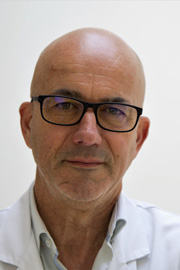
Jaafar Bennouna
Suresnes
France
Professor Jaafar Bennouna is a medical oncologist, head of the medical oncology department, at the Foch Hospital, Suresnes, France. He received his medical degree from the University of Nantes in 1996 and is board certified as an oncologist physician. After qualifying, Pr Bennouna completed a number of training courses including PhD in life science at the University of Nantes, France. From 1999 to 2001, he was research associate in Immunologic Monitoring and Cellular products laboratory at the University of Pittsburgh (USA). From 1999 to 2016, he was head of the medical oncology department, “Institut de Cancérologie de l’Ouest” (ICO), Nantes, France. From 2017 to 2021, he participated to the development of medical oncology, including clinical research, at the university hospital of Nantes. Pr Bennouna’s main research interests include lung carcinoma and gastro-intestinal cancers. He is also involved in early clinical development, phase I trials. He has published numerous papers in national and international journals and presented the results of his research at international conferences. Pr Bennouna is a member of a number of societies including the American Society of Clinical Oncology (ASCO), European Society of Medical Oncology (ESMO), and “Institut Francophone de Cancérologie Thoracique”. He is the past president of UNICANCER GI (2013 – 2016).
